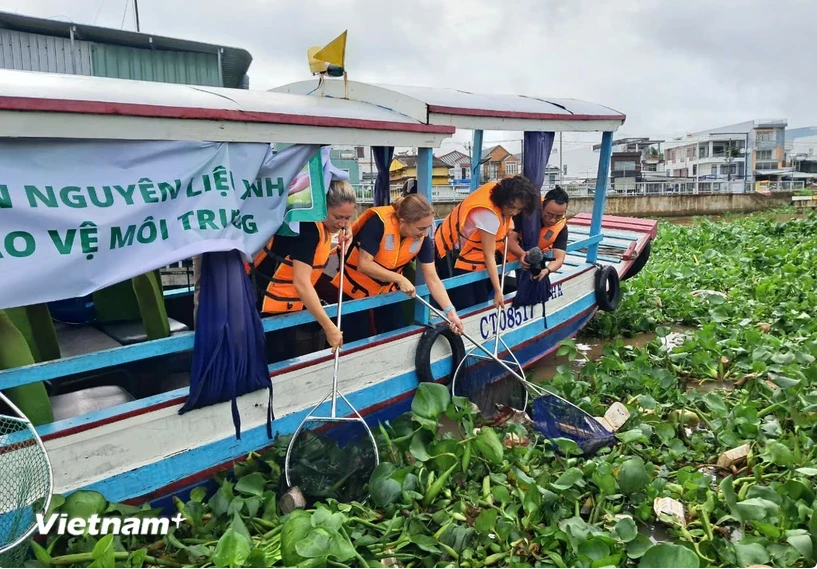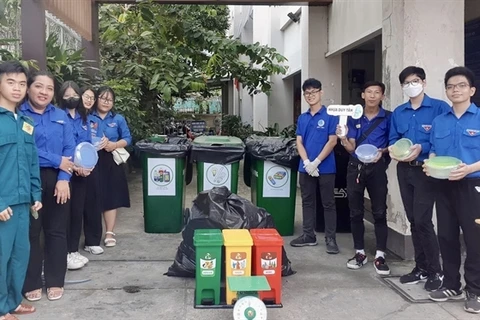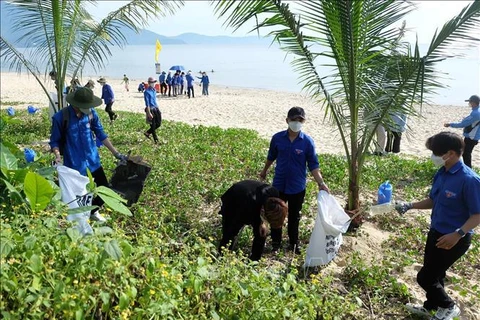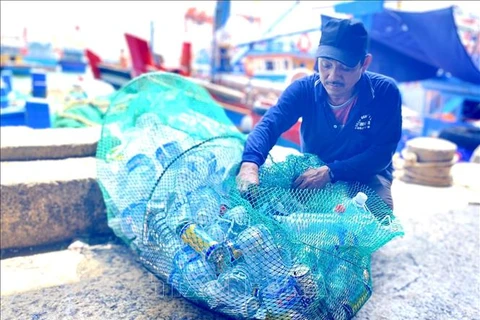
Can Tho (VNA) – The United Nations Development Programme (UNDP) in Vietnam, in collaboration with the Department of Natural Resources and Environment of the southern city of Can Tho, on September 18 launched a campaign to collect waste and clean the environment in Cai Rang floating market on the Can Tho River, one of the popular tourist destinations in Ninh Kieu district which is facing a risk of pollution.
The event aims to raise public awareness and change people's behaviour in waste disposal and recycling while strengthening cooperation between stakeholders to improve the efficiency of solid waste management in Can Tho.
According to UNDP's sustainable development specialist Dzeneta Mulabegovic, every year, Vietnam discharges about 3 million tonnes of solid waste, about 2.5% of which leaks into waterways, while a portion of plastic waste floats into rivers and drifts near the coast and offshore.
Studies from 2021 showed that floating waste from rivers contributes the most to plastic pollution in the ocean, she said.
In Can Tho, about 650 tonnes of waste are released to the environment every day, she noted, stressing that despite the high rate of garbage collection at 85%, the city still faces difficulties in managing waste leakage on waterways, floating markets, rivers and lakes, which affects the living environment as well as the natural ecosystem.
Mulabegovic pointed to the need for comprehensive solutions, especially those to change behaviours and waste disposal habits as well as effectively collect, sort and treat domestic solid waste.
She said that one of the major solutions that Can Tho should prioritise is to deploy automated systems that efficiently collect waste in waterways and bring it ashore – where it can be processed by the city’s waste management system. This approach helps prevent waste and plastic from floating in rivers before it reaches the sea, reducing ocean plastic pollution, she explained.
Meanwhile, Standing Vice Chairman of the Can Tho People’s Committee Duong Tan Hien put forward solutions, including launching community campaigns to clean up the environment, plant trees and restore the environment in urban, residential and surrounding areas, especially on lakes, rivers and canals.
Right after the launching ceremony, delegates and local youngster collected waste on the Can Tho River and visit the Interceptor 003 system, an automatic waste collection vessel operated by the The Ocean Cleanup (TOC) organisation on the river.
According to the UNDP in Vietnam, in the past three years, the automatic waste collection system on the Can Tho River has collected more than 200 tonnes of plastic waste on the river./.






















